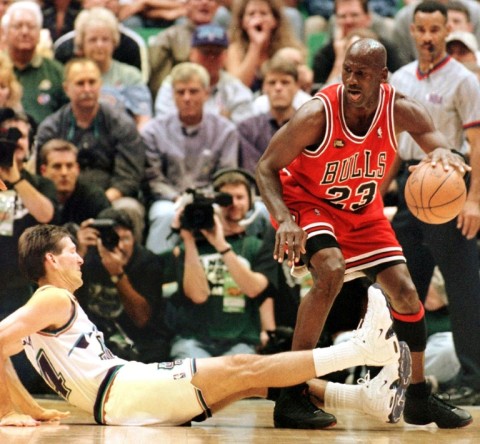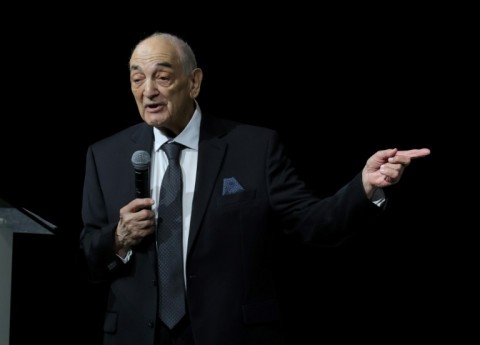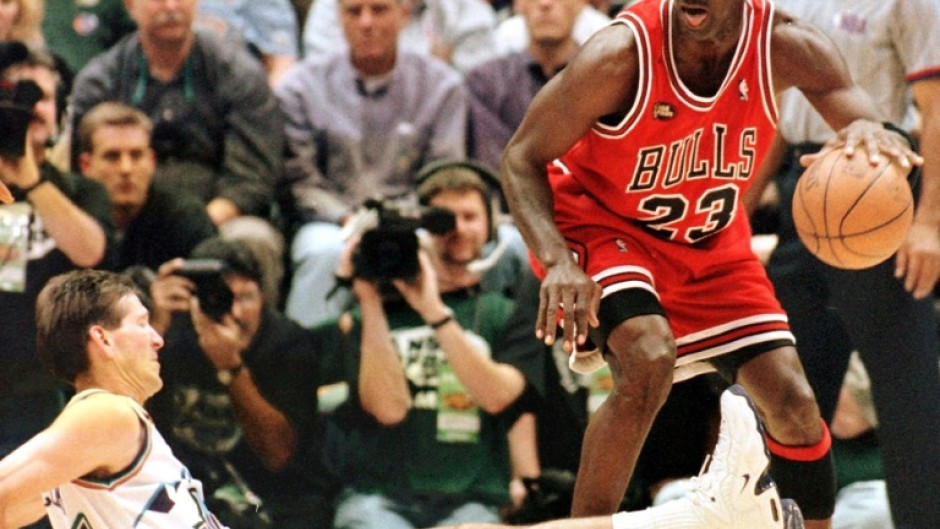
AUGUSTA - The hero of the new movie "Air," released this week in the United States, is Sonny Vaccaro, a Nike employee who saw in a young Michael Jordan what "no one else had seen" and convinced the shoe brand to forge a revolutionary partnership.
During a 1984 meeting at Nike headquarters, Vaccaro proposed devoting all the money that Nike had earmarked to recruit future NBA players to one man -- rising sports star Jordan.
"Air," directed by Ben Affleck, traces the chaotic journey that brought about the singing of the barely-out-of-college player, even though Jordan had eyes on Nike's competitors, Converse and Adidas.
Nearly 40 years later, the Nike partnership with Jordan has grown into an empire, with $5.1 billion in sales last year from the Beaverton, Oregon-based company's Jordan Brand alone.
"I saw (in Jordan) something that maybe nobody else saw... and I bet my job that he would be the person," says Vaccaro, now 83, whose position at Nike was, at the time, under threat.
"Michael had something different. He had a killer instinct," Vaccaro says. "He was always competitive. And I don't know of another player that ever came along (like that)."
"The only one that I could put close to Michael and what he did... was Kobe Bryant," says Vaccaro, a multifaceted entrepreneur, businessman and talent scout. "Kobe had the same instincts... the same 'I don't give a damn about anything, I'm going to be the best.'"
In 1996, Vaccaro, who is played by actor Matt Damon in "Air," signed Kobe Bryant to Adidas, his employer at the time. He also came close to recruiting LeBron James to the brand in 2003.
- 'Paved the way' -
Michael Jordan's arrival at Nike transformed the sports industry, revolutionizing both marketing and mass consumption, with billions of dollars at stake.
"That has really paved the way for corporations... to bet big on individual athletes and trend away from the team," says Thilo Kunkel, director of Temple University's Sport Industry Research Center.
Before Jordan, tennis players Stan Smith and Ivan Lendl, as well as basketball star Kareem Abdul-Jabbar, had already had their own Adidas models, as had NBA star Walt "Clyde" Frazier at Puma.

"Jordan probably got lucky and benefited from the trends that were happening already but I think he also contributed quite a bit to that trend," Kunkel says. "He accelerated it."
Until then, promotional campaigns were limited to full-page magazine ads and a few radio shows, recalls Vaccaro, who sees the marketing push promoting Jordan as groundbreaking.
"We did national television ads, and Nike made the best ads in the world. They invented it and it all worked out perfect," he says.
The imagery of Air Jordan, the brand created around the player, celebrated a charismatic athlete who was both cool yet fiercely competitive.
The ads were permeated with urban culture, the precursor of the "athleisure" phenomenon, which turned the sports shoe into a fashion accessory to be worn at all times and in all circumstances.
Although he was the linchpin of what remains, without doubt, the largest partnership in the sports industry, generating tens of billions of dollars in revenue, Vaccaro did not benefit financially.
"That's true," he concedes, "but I did okay, we made a good living, whatever. I'm happy with my life."

